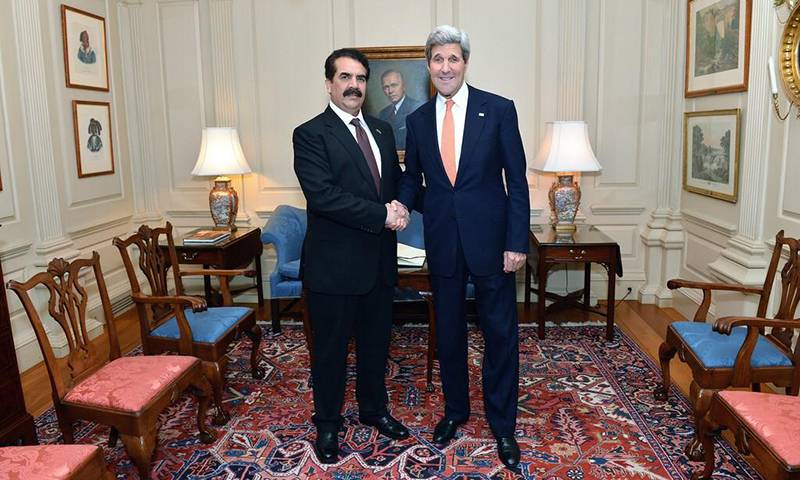In a rare departure from standard practice, the Army Chief, General Raheel Sharif set aside the military uniform and donned a black suit when he met with US Secretary of State, John Kerry. More than the change in attire, the extended trip of two weeks, which contained a flurry of hushed meetings, and loud, friendly gestures, have led to a few raised eyebrows. In a telling comment, the Sectary of state termed the Pakistan Army – not the Pakistani government – a ‘truly binding force’. Contrast this with the Prime Minister’s track record with the US; a largely anonymous visit, a few diplomatic meetings in the sideshow of the UN conference, and a miserly phone call from President Obama, informing the Prime minster of his impending India visit and exchanging of empty platitudes about taking bilateral ties ‘one step beyond’. It becomes increasingly clear the not only does the US recognize where the balance of power lies in the Pakistani politic, but that the civilian government has surrendered its defence and foreign policymaking to the men in khaki.
Are we being too prejudicial? Letting history colour our interpretations of chance remarks, and what might be a civilian endorsed delegation of duties? Yet, events other than the US relations endorse this unfortunate imbalance. President Ashraf Ghani’s milestone visit to Pakistan was topped off with a stop at GHQ Rawalpindi. Operation Zarb-e-Azb seems to be running without much civilian input or oversight, and the military, not the state, is perceived as the face of the operation; a fact, lack of independent journalism testifies. Most significantly, the PTI-PAT march on the parliament that shook the sitting government, made the military a major player. The question of it being the actual ‘third umpire’ is irrelevant, since it is undeniable that the military made gains in the whole fiasco, be it by design or by chance. Now this development, one that was on the cards, is a blow to the nascent democratic procedure. Despite a strong government President Nawaz Sharif has squandered the opportunity to establish parliamentary supremacy. Once again, an important chunk of Pakistani governance has been handed over to people with no democratic legitimacy and little diplomatic or political training. Although a stronger Pakistan-US relationship is extremely necessary in nexus with Afghanistan, and the efforts of Raheel Sharif for both, the strategic dialogue and the military operation are highly appreciated. The sidelining of democracy is the graver causality.
One jarring note in this otherwise bleak picture is Pakistan’s blooming relationship with China, which seem not only to be the forte of the premier, but his brainchild. Does this represent some sort of exclusive civilian domain, or does the purely economic nature of these agreements hint at what the military controls and what it allows the democratic leader to control?
Saturday, April 20, 2024
Balance Of Power

Policitising Tragedy
April 20, 2024
Tehran to Rafah
April 20, 2024
A New Leaf
April 20, 2024
A Tense Neighbourhood
April 19, 2024
Dubai Underwater
April 19, 2024
Dangers of Deepfakes
April 20, 2024
Feudalism
April 20, 2024
Kite tragedy
April 19, 2024
Discipline dilemma
April 19, 2024
Urgent plea
April 19, 2024
ePaper - Nawaiwaqt
Advertisement
Nawaiwaqt Group | Copyright © 2024





